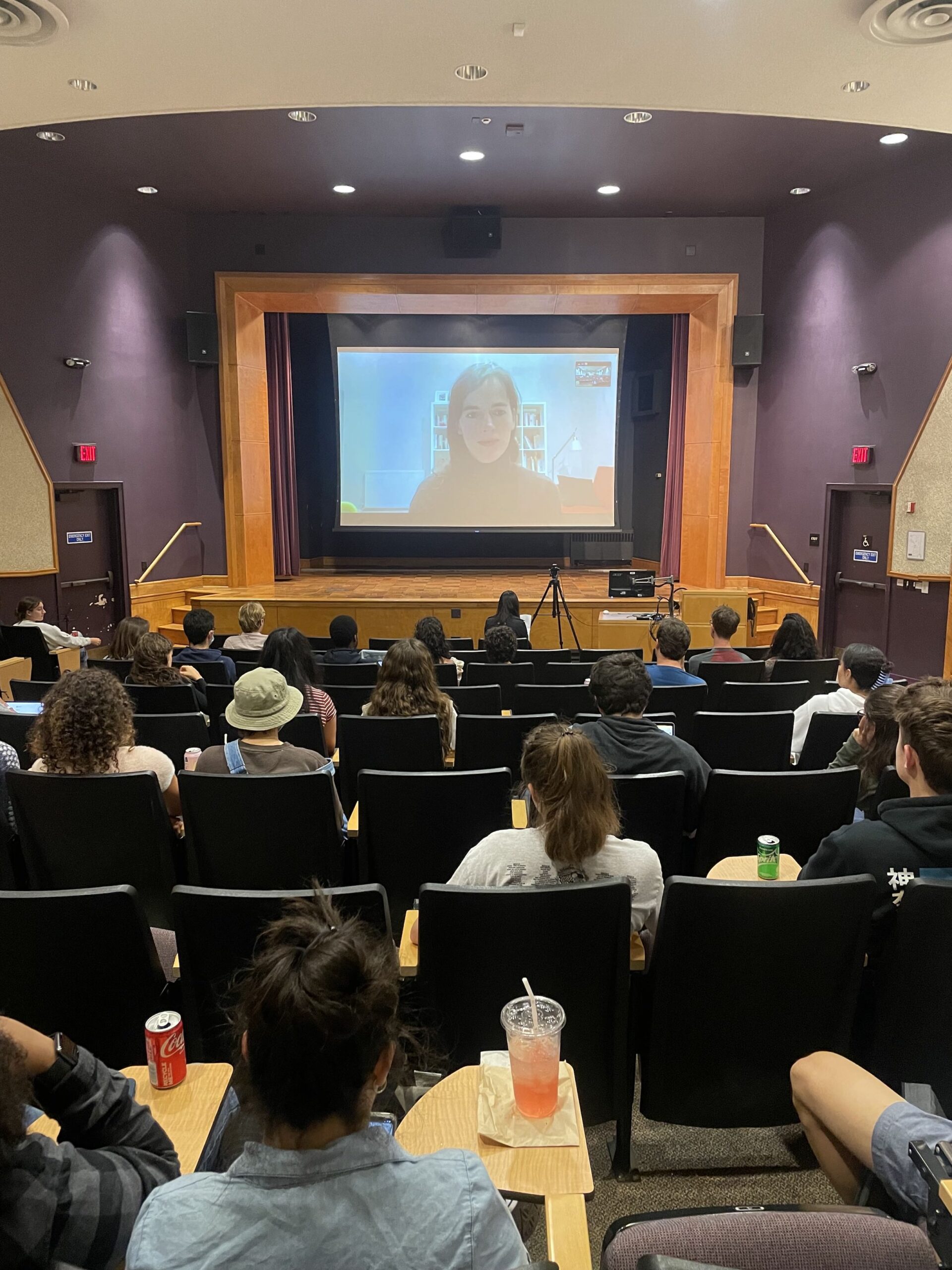Dr. Carissa Veliz lectures on the ethics of data sharing, cites privacy concerns through history
September 30, 2022
 Photography by Sam Cooper
Photography by Sam CooperOn Monday, the Department of Philosophy hosted Dr. Carissa Veliz, associate professor at the Faculty of Philosophy and the Institute of Ethics in AI and a fellow at Hertford College at the University of Oxford. Her talk, titled “Why Privacy is Power,” used a mix of historical and modern examples to discuss the dangers of personal data collection and exploitation.
Veliz opened her talk with a warning: when someone shares their genetic data, they are also sharing the genetic data of their family members.
“Every time you share some personal data, you’re also likely sharing personal data about other people. So, the word ‘personal’ is kind of misleading in that context, because it seems to suggest that your data is only around you, but actually, it’s not,” Veliz said.
Veliz also spoke about the danger that comes with accessibility of data in today’s world and the potential to abuse it.
“It’s very hard to keep [data] safe,” Veliz said. “And it’s very easy to misuse in all kinds of ways.”
She cited how data was used by the Nazis in their persecution of French and Dutch Jews to demonstrate the exploitation of data. A report from the time found that people from the Netherlands had the most amount of personal data collected about them.
“In contrast, in France in 1872, the government made a conscious decision not to collect certain kinds of data about people, including data about their religious affiliation,” Veliz said. “The result was that the Nazis found and killed about 73 percent of the Jewish population in the Netherlands, and in France, 25 percent of the Jewish population were killed.”
Veliz stressed the importance of data privacy in ensuring one’s security, citing two journalists who, without extensive technology, could pinpoint the location of the president.
“The country is not safe, and no one is safe, because it’s very, very easy to find someone’s location,” Veliz said.
Veliz’s concerns about data protection came to Assistant Professor of Philosophy Aliosha Barranco Lopez’s attention after reading Veliz’s book “Privacy is Power.”
“Her book changed a lot of things with my life, but partly, my idea of what is the most important thing that philosophers should be studying right now, and I think it’s issues related to the philosophy of technology,” Barranco Lopez said.
Barranco Lopez, who is teaching “Ethics for a Digital World” this semester, hopes students reflect on the relevance of Veliz’s message.
“I think that part of the importance of the talk is that it gives you awareness of the problems of the world that you live in and that you always have lived in,” Barranco Lopez said.
Some audience members were inspired to consider their own data management decisions.
“The biggest takeaway for me was just to think critically and to think carefully about what you’re agreeing to when you sign a terms of service or a privacy policy,” attendee Sofia Fogg ’26 said.
To close the talk, Veliz flipped her narrative to say that, despite potential harm, data sharing is not inherently wrong. She noted that data sharing is now a key part of society and is no longer revolutionary.
“What’s radical is to have a business model dependent on a systematic and rigorous validation of the right to privacy,” Veliz said. “It doesn’t mean that we shouldn’t use personal data. It’s fine to use personal data, we just shouldn’t sell it.”

Comments
Before submitting a comment, please review our comment policy. Some key points from the policy: